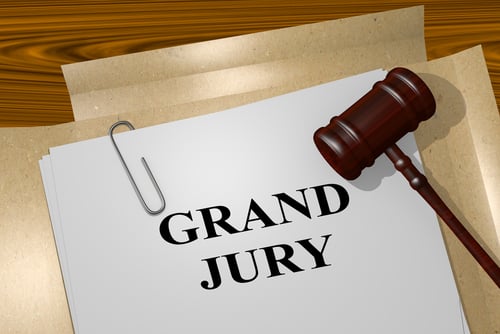Grand jury calls jail informant program a 'myth,' but testimony in related case contradicts that

One day after a grand jury report said there was no officially sanctioned jailhouse informant program in Orange County, California, testimony in a related case said otherwise, the Orange County Register reported last week.
The grand jury report (PDF), entitled “The Myth of the Orange County Jailhouse Informant Program,” said informants have been misused in specific cases and that leaders in the Orange County District Attorney’s Office have not been paying enough attention, the Register reported two days later.
But there’s no officially sanctioned informant program, the report says. Rather, the grand jury believes the problem was “a few rogue deputies who got carried away with being crime fighters,” according to forewoman Carrie Carmody’s statement at a press conference.
But the day after the report, the newspaper said, former sheriff’s lieutenant Catherine Marie Irons appeared to contradict it, testifying in court that she’d helped formalize a jailhouse informant program between 2012 and 2015, at the request of her supervisors, the Orange County Register reported.
That testimony came during evidentiary hearings by Orange County Superior Court Judge Thomas Goethals on the use of informants by jailers from the Orange County Sheriff’s Department. The grand jury had called the Goethals hearings a “witch hunt,” according to the Register.
The jailhouse informant program matters because in 1964, the U.S. Supreme Court forbade the government from eliciting incriminating statements after the defendant has been formally charged, triggering the right to a lawyer. Failure to disclose the use of informants in court would also be a violation of the defendant’s rights under Brady v. Maryland. In the case before Goethals, public defender Scott Sanders has submitted evidence suggesting that the Sheriff’s Department and District Attorney’s office have been violating defendants’ civil rights for years in this manner. The ABA Journal reported on this topic last year.
Orange County District Attorney Tony Rackauckas hailed the grand jury report as a victory and the informant scandal as “phony news,” the Register reported.
But the report appears to contradict the findings not only of Goethals—who kicked the entire District Attorney’s office off a mass-murder case after evidence of cheating surfaced—but several other entities. California’s Fourth District Court of Appeal has found “systemic” cheating by prosecutors and police. Multiple murder and attempted-murder cases have been dismissed or resentenced by judges other than Goethals after evidence surfaced that jailhouse informants were used improperly. The U.S. Department of Justice is currently investigating the matter.
As the Register noted, courtroom evidence, which was also quoted in the media, shows that employees of the District Attorney’s office discussed moving an informant and a target to adjacent cells outfitted with recording equipment. This appears to contradict the grand jury’s statement that “all the evidence … points squarely to a coincidental placement.”
The newspaper also noted a brief filed last year by prosecutor Dan Wagner, saying sheriff’s deputies “cultivated and utilized a group of informers” whose activities were detailed by “extensive records” and who were rewarded with special favors from jailers.
The hearings Goethals is holding are aimed at discovering whether the Sheriff’s Department has illegally destroyed informant-related documents. They come in the case of Scott Dekraai, who committed the worst mass murder in county history in 2011 when he opened fire at the beauty salon where his ex-wife worked, killing her and seven others. Resolution of the case has been delayed substantially by the informant allegations.
Updated June 20 to clarify headline.



